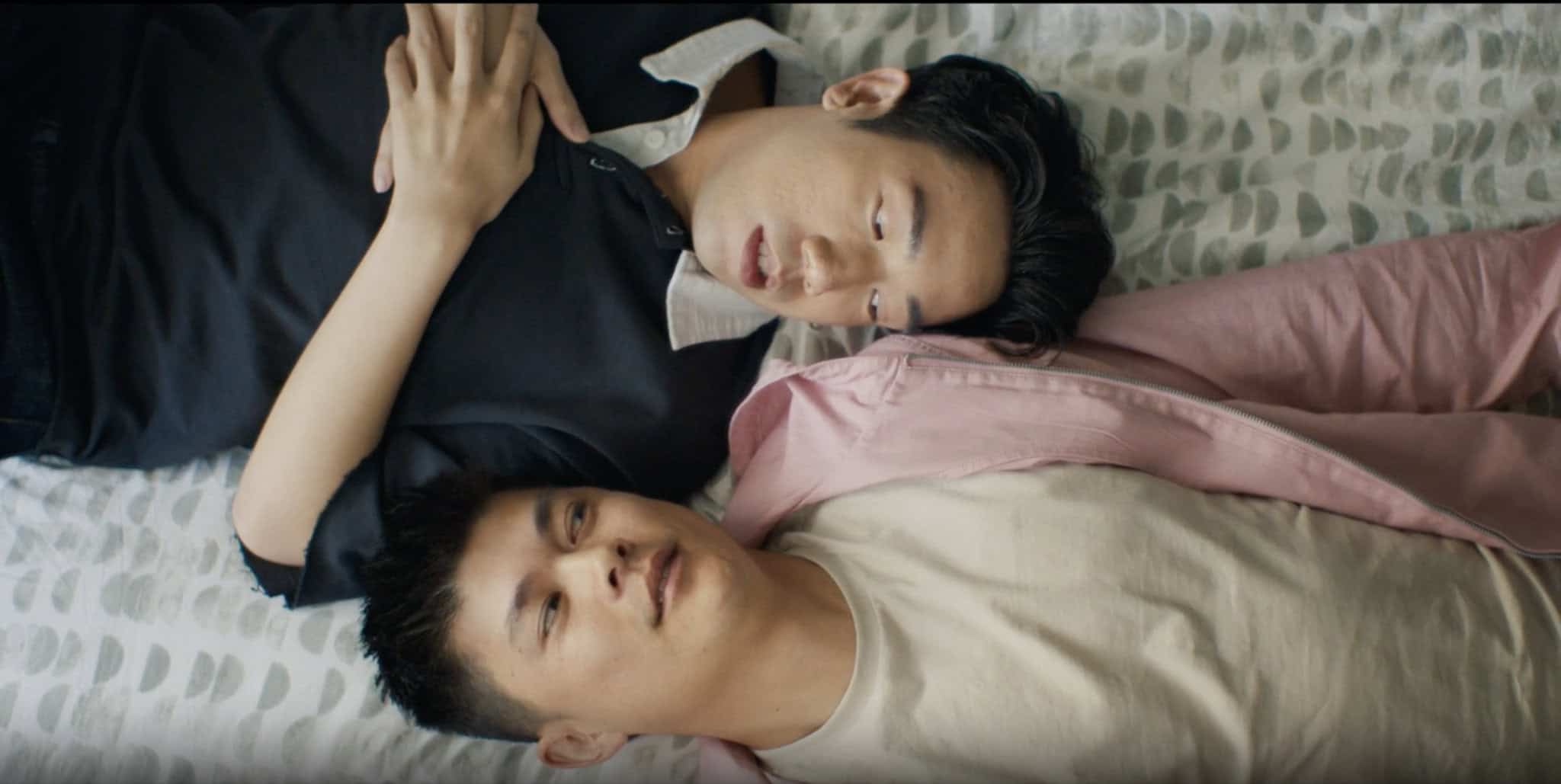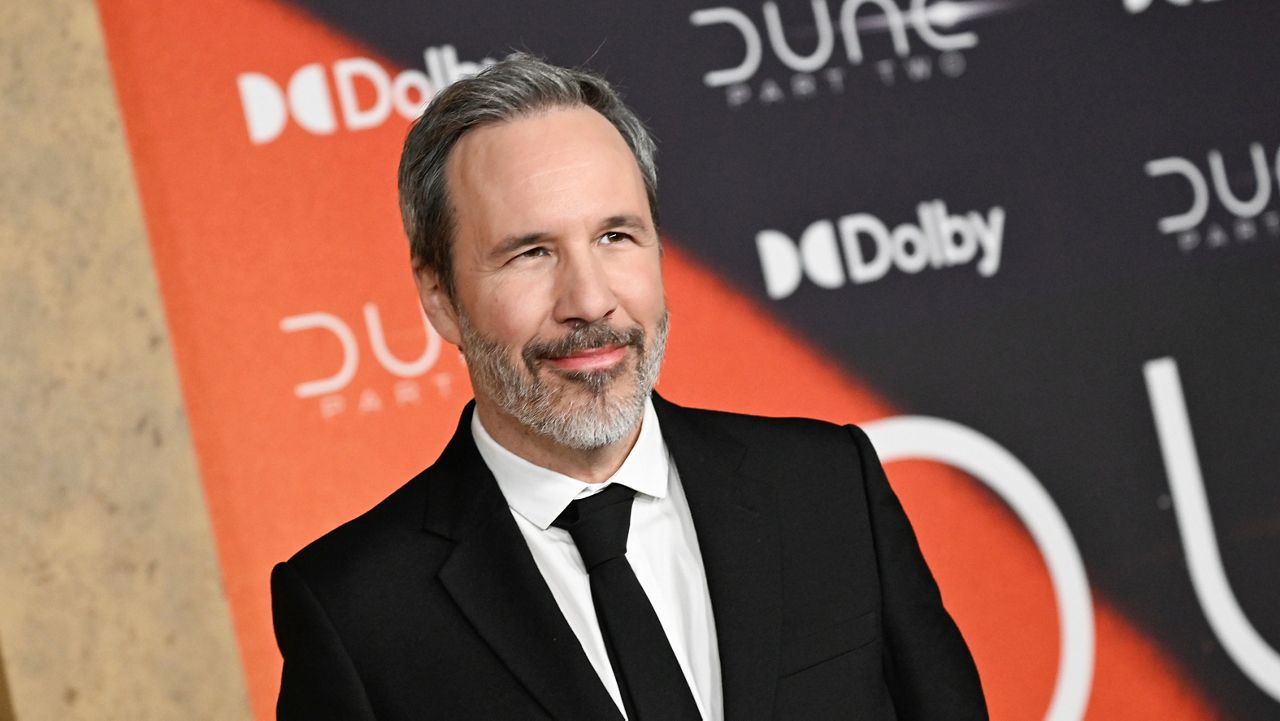Movie Reviews
‘Omni Loop’ Review: Mary-Louise Parker and Ayo Edebiri Bring Depth and Vulnerability to Moving Existential Sci-Fi

Unlike the Miami transit service that gives the film its title and gets from first to final stop in just 16 minutes, Omni Loop takes time to wade through its tangled thicket of set-up and draw you in. But Bernardo Britto’s near-future sci-fi — about death, time travel and the cherished gifts in life we take for granted while pursuing that elusive something more — sneaks up on you. The same goes for the expertly synced performances of Mary-Louise Parker, bringing her characteristic flinty authenticity to a role that could easily have drowned in quirk, and Ayo Edebiri, demonstrating once again that she’s in the top tier of emerging American actors.
In a brief prologue, a 12-year-old girl (Riley Elise Fincher-Foster) stumbles upon a bottle of pills on the greenest of fields. “You’re gonna do incredible things one day,” a voice in her head tells her. “You’re gonna change the world.” While the girl’s identity is easy enough to intuit, the full circumstances of that pivotal moment and the person behind the prophetic voice she hears are revealed only in the concluding stretch. By that time, the episode has built a powerful emotional pull — even if not all the plot holes are tidily filled.
Omni Loop
The Bottom Line Requires patience but then amply rewards it.
Venue: SXSW Film Festival (Narrative Spotlight)
Cast: Mary-Louise Parker, Ayo Edibiri, Carlos Jacott, Chris Witaske, Hannah Pearl Utt, Harris Yulin
Director-screenwriter: Bernardo Britto
1 hour 50 minutes
Britto’s Groundhog Day variation has Parker’s Zoya Lowe, a once-promising quantum physicist at Princeton, endlessly reliving the same soul-deadening five days that follow her release from the hospital with a terminal diagnosis.
Her college-sweetheart husband Donald (Carlos Jacott), their adult daughter Jayne (Hannah Pearl Utt) and the latter’s fiancé Morris (Chris Witaske) are informed by Zoya’s doctor that the black hole in her chest is inoperable and that she likely has a week at most left to live. The medic advises the bereft family to take her home, make her comfortable and provide whatever distractions they can to keep her from dwelling on her mortality.
But Zoya, whose numbness bordering on annoyance slowly starts to make sense, knows every detail of what’s to come — the reluctant meeting with her publisher over a modern physics textbook; the updating of her will; the visit to her nonverbal, cognitively impaired mother (Fern Katz) in a care home; even the conversation on a garden bench with another resident and the exact moment a bird in the tree above will drop a splat between them. The same goes for the surprise early 55th birthday celebration her family organizes.
Before she blows out the candles, a nosebleed signals her imminent disappearance, prompting her to pop another pill and wake up in hospital the next morning to start the whole cycle again.
But a chance encounter with Paula (Edebiri), a young woman studying time in a college lab, changes everything. That meeting galvanizes Zoya to break the cycle’s routine by teaming up with Paula to resurrect her abandoned research from her Princeton days and solve the enigma of time travel so that she can go back into her past — before she “settled” — and redirect her life to find the fulfillment she lacks.
Given that the time loop exists only for Zoya, that means having to start from scratch every day, convincing Paula over and over that she’s not a nutjob. Edebiri conveys the initial skepticism of each new beginning with low-key humor, but she gives the character a driving curiosity and open-mindedness that make her willingness to dive into Zoya’s research fully plausible. For her part, Paula also has a personal stake in the time-travel conundrum — her gnawing remorse over something she did in her youth that indirectly resulted in tragedy.
The future depicted in Omni Loop (the year is unspecified) is barely distinguishable from our own, clearly by design. The science stuff — the puzzling over impossible equations, the attempts to break down the complex structure of the self-regenerating reset pills — drags a little in the early stages, even with the director’s crafty low-tech solutions to depicting future technological developments like the ability to shrink humans. But all the physics talk steadily becomes less important to Britto’s investigation of what gives a life meaning, just as it becomes less important to Zoya.
What keeps the movie engaging is the rapport between the two women, and the way their mutual support and compassion slowly shifts their focus. Their heart-to-hearts at the end of each day, just before Zoya’s nosebleed stops the clock, are especially poignant, played with deep feeling by both actors. Among the more affecting scenes is Zoya’s visit to the home of a brilliant former Princeton associate and her sad exchange with the man’s son (Steven Maier), during which she learns that her inconclusive research left more of a mark than she believed.
Despite its high-concept premise and lengthy spells of laboratory work, Britto’s movie is fundamentally an intimately humanistic exploration of death and acceptance. As Kaitlyn Aurelia Smith’s score gradually evolves from needling electronica into more emotional, melodic moods, Zoya starts to see things differently, devoting more of her remaining time to her family and reaffirming her gratitude for what each of them has given her.
A quiet pillow-talk scene with Donald is gorgeous, as is a wrenching moment toward the end with the family gathered around the dinner table. There’s also a lovely sense of intergenerational generosity, as two sharp scientific minds pool their knowledge, and ultimately, as Zoya instills confidence in Paula to continue her work.
Perhaps a line or two to explain how Zoya has been reliving the same five days and yet has somehow advanced four decades since she first started taking the pills wouldn’t have hurt. But that’s just a quibble. The movie’s message — about owning your choices and appreciating what you have rather than what you might have wished for — plays out as a comforting balm.

Movie Reviews
‘The Blue Angels’ Review: IMAX Doc About U.S. Navy Aerial Unit Alternates Dazzling Footage and Filler

If you’ve ever oohed and aahed at a fighter jet demonstration, you probably also wondered about the laborious efforts that must go into producing such an enthralling aerial display. The documentary The Blue Angels aims to answer all your questions, providing a detailed, behind-the-scenes look at the venerable United States Navy and Marine Corps outfit that has probably done more to boost enrollment than anything other than the Top Gun films. The connection is further emphasized by the fact that Glen Powell, who played military pilots in both Devotion and Top Gun: Maverick, serves as one of the film’s producers.
The Blue Angels, which tours the country annually for eight months at a time, consists of six jet fighter pilots flying in dazzling formations, sometimes no more than a terrifying 18 inches apart. Paul Crowder’s documentary chronicles their 2022 season, from the highly competitive selection process to the rigorous training to the exhausting tour that includes not only the aerial demonstrations but also considerable outreach programs including visits to schools and hospitals.
The Blue Angels
The Bottom Line Who needs Maverick?
Release date: Friday, May 17
Director: Paul Crowder
Rated G,
1 hour 34 minutes
Naturally, the film provides personal portraits of the various members, including the flight leader, Brian Kesselring, whose all-American, square-jawed good looks and intense personality could certainly provide plenty of acting opportunities should this flying thing not work out. “This place is the great equalizer,” he explains about the rigorous program that separates the men from the boys. And thankfully, finally women, as we’re later introduced to Amanda Lee, the first female pilot ever to be inducted into the program.
Kesselring leads the training, which includes desk sessions that have an almost ritualistic quality. The goal is to make six jets fly as one. “That’s the Blue Angels magic,” he says proudly.
And magic it is, with the film including generous amounts of amazing flight footage, much of it shot from within the cockpit, that illustrates the rigorous flying patterns, including their signature Delta Formation in which the six jets come together with seemingly impossible closeness. External views are provided by a helicopter outfitted with IMAX-certified cameras, representing the first-ever civilian aircraft permitted to fly inside the performance airspace known as “the box.” Not surprisingly, the aerial camera unit involved was also responsible for the flying sequences in Top Gun: Maverick.
We also learn about the history of the Blue Angels, which was the brainchild of Admiral Chester Nimitz, who created it in 1946 to promote public interest in naval aviation. The film doesn’t shy away from the tragedies that have dotted the program, which has had 28 fatalities since its inception. Their names and faces are memorialized on a large portrait displayed in the organization’s headquarters.
The tremendous effort involved in the training process is best illustrated in a harrowing sequence in which we see several applicants participating in a centrifuge testing session. The pilots are not able to wear G-suits while flying because their inflating and deflating could interfere with the plane’s controls. So they must counteract the G-force with sheer physical strength, clenching all the muscles in their lower bodies to prevent the blood from leaving their head and causing them to pass out. Two of the pilots in the session, their faces horribly contorted by the effort, do indeed lose consciousness, and it’s very tough to watch. You’ll find yourself clenching your own butt cheeks in sympathy.
The feature-length film features no small amount of padding, including looks at the family lives of several of the pilots, that demonstrates that it might have been more effective as the sort of 45-minute documentary short that regularly plays IMAX theaters in museums, etc. The Blue Angels has a more ambitious rollout, showing in IMAX theaters for one week before streaming on Amazon Prime, and this is one film that’s definitely worth catching on the big screen.
Full credits
Production: Zipper Bros Films, Bad Robot, IMAX, Dolphin Entertainment, Barnstorm Productions, Sutter Road Picture Company, Diamond Docs
Distributor: Amazon MGM Studios
Director: Paul Crowder
Producers: Glen Powell, Sean Stuart, Glen Zipper, Mark Monroe, J.J. Abrams, Hannah Minghella
Executive producers: John Turner, Bill O’Dowd, Emerson Davis, Rob Stone, Greg Wooldridge
Directors of photography: Jessica Young, Michael Fitzmaurice, Lance Benson
Editors: Kevin Klauber, James Leche, Paul Crowder
Composers: James Everingham, Stewart Mitchell
Rated G,
1 hour 34 minutes
Movie Reviews
Film Review: Extremely Unique Dynamic

Does not live up to its ambitious title, but it can be fun at times
Two buddies, Ivan Leung (an actor with several bit roles mostly on TV under his belt) and Harrison Xu (a prolific voice actor specialised in English-language dubbing of Asian series) and their actress-filmmaker friend Katherine Dudas decided to make a movie. About two aspiring actors friends making a movie. About two friends making a movie. How meta is that? Double or triple? Anyhow, that is how a little no-budget indie comedy “Extremely Unique Dynamic” was born, and we got the chance to see it at Caam Fest…
Extremely Unique Dynamic is screening at CAAMFest
The plot is actually a simple one. Daniel (Leung) and Ryan (Xu) are life-long besties that have been trying to become famous for all their lives. As kids, they used to play filming their shenanigans with a camcorder, and as adults they are aspiring actors and roommates in Los Angeles that spend most of their time auditioning endlessly and posting the stuff they make together online. However, Ryan is about to move out to Canada with his girlfriend Harper and the two buddies have only one last weekend to say goodbye to each other and to their dynamics.
Choosing between the usual stuff like getting stoned and visiting the places of their shared past for one last time, they decide to make their own movie. One of the troubles is that their tastes and their knowledge of the different “lores” differ greatly, which is the reason why the more proactive of the duo, Ryan, insists on a meta-approach, which Daniel accepts in order to raise some of the issues in their own relationship while hiding behind the character and using it as a mask of sorts. What started as a (potentially stoner) buddy-buddy comedy quickly turns into an indie drama where two people talk about feelings…
As filmmakers, Leung and Xu try to hit a number of topics and issues regarding the film industry nowadays, the Asian-American experience and its representation in show business and the gay-straight buddy dynamics in very brief format of just above 70 minutes. As a person with one feature film under her belt already, Katherine Dudas presumably serves as a coordinator in order for the story not to get derailed. The trouble is that all topics the trio aims for are touched only superficially and with a lot of redundancy, while there is also (at least) one meta-level too many in the very structure of the film, and it serves pretty much as an additional burden. Also, their directing style is very plain, usually relying on a series of reverse shots for dialogue scenes, which might signal either the lack of imagination or the lack of funds. Luckily, some of the jokes written in the script hit the mark spot on, while the fact that they also take jabs at the pillars of the Asian-American experience is also quite commendable.
Acting-wise, the actors in the duo might not be strong enough to pull the weight of a whole feature movie that would serve better as a short. On the other hand, they are trained enough to nuance the shades of (bad) acting on different meta-levels, which is also one of the better executed jokes. Also, the appearance of Hudson Yang (of “Fresh of the Boat” fame) in an extended cameo that eventually takes turn to the territory of Kevin Smith’s Silent Bob character works both as an elaborate film industry joke and as something that elevates the acting dynamic in some scenes.
The technical aspect of the film remains on a pretty basic level, with some questionable production values, but it is somewhat expected for a non-budget movie. It might also be a deliberate choice, given that the cinematographer Steven Shulgach and the editor Michael Scotti Jr show that they are capable of doing their jobs properly at moments they are allowed to. The whole thing could actually serve as a study how (not) to stretch something that could be a podcast episode laced with some videos to a feature film, especially when the highlights such as two music video for a couple of dumb catchy tunes and one animated sequence happen during or after the closing credits sequence.
In the end, “Extremely Unique Dynamic” does not live up to its ambitious title, but it can be fun. Sporadically and in a “slacker-ish” kind of way.
Movie Reviews
The Roundup Punishment Review: Sturdy Formula

The Roundup: Punishment is earnest and fun enough as a turn-your-brain-off action film, but its formula is its greatest flaw as it is its strength.
Director: Heo Myeong Haeng
Genre: Action, Crime
Run Time: 109′
US Release: May 3, 2024
UK Release: May 3, 2024
Where to watch: in theaters
Korean Title: City of Crime 4
English Title: The Roundup – Punishment
I don’t think I’ll ever comprehend how movie title translations work. Then again, I shouldn’t bash the English side only. I mean, the film Fate of the Furious is translated as Furious Ride: The Extreme in Korean.
Directed by Heo Myung-haeng, The Roundup: Punishment is the fourth installment in The Roundup series, following Ma Seok-do (Ma Dong-seok, of Train to Busan), and his battles against crime as the Seoul Police Agency lieutenant. This time, his battle is against an online gambling organization exploiting and even killing off teenagers. God help the criminals.
Maybe that was shorter than usual, but you need to understand that this goes for The Roundup series in general. They are not complicated movies. Ma Seok-do finds a group of irredeemable criminals, and his hulking mass of muscles and an even greater sense of justice leads him on an unstoppable rampage against crime. Lots of action, just as much comedic bits, and you have the series in a nutshell; The Roundup: Punishment is no exception.
It’s easy to understand if you look at Ma Dong-seok. His filmography mainly consists of him as a physically dominant action star that also doesn’t forget a bit of heart and a little adorableness on the way. In other words, he’s the Korean equivalent of Dwayne Johnson, Jason Statham, Liam Neeson, etc, where the actor has created a popular typecast image around himself, one that’s genuinely likeable and easy to consume. I don’t dislike these sort of actors. Yes, one could accuse them for basically playing the same character in every movie, but even creating that iconic typecast image takes genuine skill.
If Ma Dong-seok was really ctrl cv-ing his performances across his movies, then that image would have run dry very fast. Instead, while his general mannerisms and settings are similar, he brings in different bits of heart or dialogue to each of his roles, so that they are recognizable as the Ma Dong-seok brand, but still feels just different enough to watch. When this typecast imagemaking is done well, I can enjoy myself, and that certainly is the case with The Roundup: Punishment. Ma Dong-seok is a large part of what makes the film tick.

But if the movie puts in no effort beyond its star, then even a strong typecast image cannot carry the entire film on its own. Thankfully, The Roundup: Punishment isn’t one of those movies. For one, the film’s action is actually a lot stronger than I expected. Ever since John Wick (2014) popularized the “steady cam” style of action, so to speak, more movies have thankfully been following its example, and this is one of them. Camera remains fairly steady, and the shots are long and clean, giving the audience enough time to take in the stunt work.
In addition, the film doesn’t forget that Ma Dong-seok isn’t the only character in the film. Seok-do’s police comrades might not get deep or largely compelling stories, but they still remain likeable and relevant in bringing in the film’s villains. They also provide the main source of this film’s comedy. Not all of them land, but they give off a general air of people who are sincere and have known each other for a long time, which gives me enough incentive to stick through even the bad jokes.
The movie also puts in a bit of effort in making its villains compelling, although in this regard, it also runs into an issue. Baek Chang-gi (Kim Mu-yeol, of The Gangster, The Cop, The Devil), a former special forces member turned criminal, doesn’t have too many iconic lines, or lines in general. But he makes up for it by bringing an air of a cold and completely serious killer, which extends to his action as well. It makes him entertaining to watch, and he comes off as a credible threat to some extent.
But that’s the main issue, “to some extent.” And this comes back to a problem that’s not just prevalent in the film but the entire series. Ma Dong-seok is such a hulking, impressive looking badass that it’s hard to really feel like any threat is viable against him. Unless we start introducing super soldiers into the mix, any criminal is going to come off as an underdog against Seok-do.
I realize that is a part of the series’ charm: to see an unstoppable badass crush irredeemable villains. But when you’re on the fourth installment, I feel some change has to be made in that department. Either bring in someone who can match Seok-do or at least hold up better against him, or if you can’t build a credible physical threat (understandable, considering the actor’s the size of a two-ton truck), have a villain that challenges him intellectually or politically.
In addition, while the positives I mentioned above do keep the film entertaining enough for the main lead’s charm to carry through, it also means if you can’t get on board with that primary charm, the film’s going to feel a lot more empty. Then you’ll end up noticing its paper-thin story, lack of any real deep arcs, or some plot holes and conveniences that will further take you out of the experience. As the series continued, the Ma Dong-seok magic has lost some of its initial spark, and thus the aforementioned downsides have become a lot more noticeable.
In the end, when I score the films I review, I do so on the basis of how much I was immersed and enjoying myself with it. And on that front, The Roundup: Punishment is solid. But that doesn’t mean I don’t realize how this sort of movie, and to that extent, Ma Dong-seok’s primary filmography, won’t work for others who are less forgiving of the typecast format. Even I recognize that despite being a fun time, The Roundup series needs to change soon. I hear there are 2~3 more films planned in this franchise, and I can only hope those can keep up the Ma Dong-seok formula strong, and not let it run itself into the ground.
The Roundup: Punishment is out now globally in theaters.
-

 Politics1 week ago
Politics1 week agoAnti-Israel groups accuse Chicago, DNC of trying to ‘protect’ Biden from protests at 2024 Dem convention
-

 Politics1 week ago
Politics1 week agoHouse Dems seeking re-election seemingly reverse course, call on Biden to 'bring order to the southern border'
-

 World1 week ago
World1 week agoSpain and Argentina trade jibes in row before visit by President Milei
-

 Politics1 week ago
Politics1 week agoFetterman says anti-Israel campus protests ‘working against peace' in Middle East, not putting hostages first
-

 News1 week ago
News1 week agoUS man diagnosed with brain damage after allegedly being pushed into lake
-

 World1 week ago
World1 week agoGerman socialist candidate attacked before EU elections
-

 World1 week ago
World1 week agoGaza ceasefire talks at crucial stage as Hamas delegation leaves Cairo
-

 Politics1 week ago
Politics1 week agoRepublicans believe college campus chaos works in their favor



















